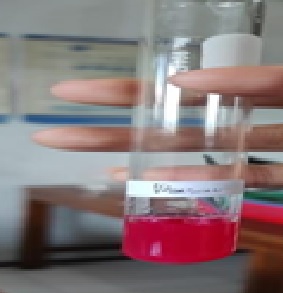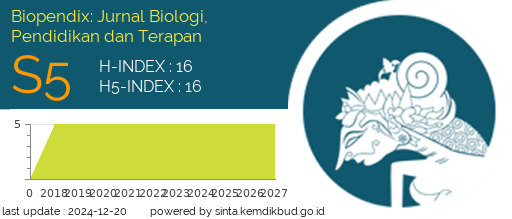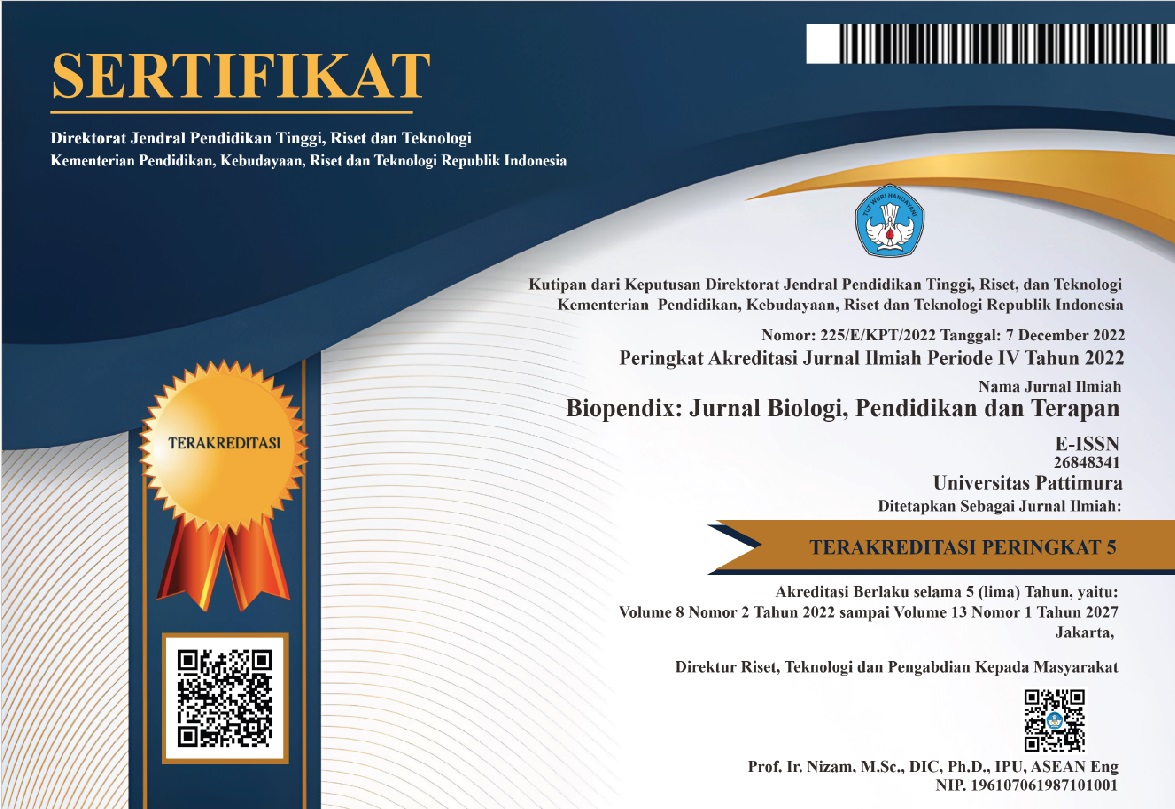DETEKSI FORMALIN PADA IKAN TERI (Stolephorus sp.) ASIN KERING YANG DIJUAL DI PASAR TRADISIONAL KOTA AMBON
-
Abstract
Background: A traditional processed product that is popular and very popular in Indonesia, namely salted fish, but public knowledge about salted fish that is safe and good for consumption is still lacking. This is proven by the fact that there are still many salted fish containing formaldehyde circulating and being consumed by the public. Many manufacturers or sellers add chemical additives or preservatives to get around this situation, one of which is formaldehyde. Based on the data, there is still a lot of use of dangerous food additives (formalin) in salted fish in several traditional and modern markets in cities in Indonesia. This happens due to the lack of knowledge of producers and sellers regarding food safety in the manufacturing process. For this reason, it is necessary to conduct research to detect formaldehyde in dried salted anchovies in Ambon.
Methods : This research was conducted in June 2022 with the sampling location at the Ambon City Traditional Market and sample analysis was carried out at the Fisheries Product Technology laboratory, FPIK Unpatti. The explorative method used to reveal reality is in accordance with the facts on the ground
Results: Qualitative formalin testing found 2 samples of salted anchovies sold in a traditional market in Ambon City were detected positive for containing formalin and 8 samples of salted anchovies were negative (no formalin detected).
Conclusion: salted anchovies that are detected positive for containing formalin are declared not to meet the health requirements set by PERMENKES RI No. 1168/Menkes/Per/X/1999 so it is not safe for consumption
Downloads

Authors who publish with this Journal agree to the following terms:
- Author retain copyright and grant the journal right of first publication with the work simultaneously licensed under a creative commons attribution license that allow others to share the work within an acknowledgement of the work’s authorship and initial publication of this journal.
- Authors are able to enter into separate, additional contractual arrangement for the non-exclusive distribution of the journal’s published version of the work (e.g. acknowledgement of its initial publication in this journal).
- Authors are permitted and encouraged to post their work online (e.g. in institutional repositories or on their websites) prior to and during the submission process, as it can lead to productive exchanges, as well as earlier and greater citation of published works




 2
2






